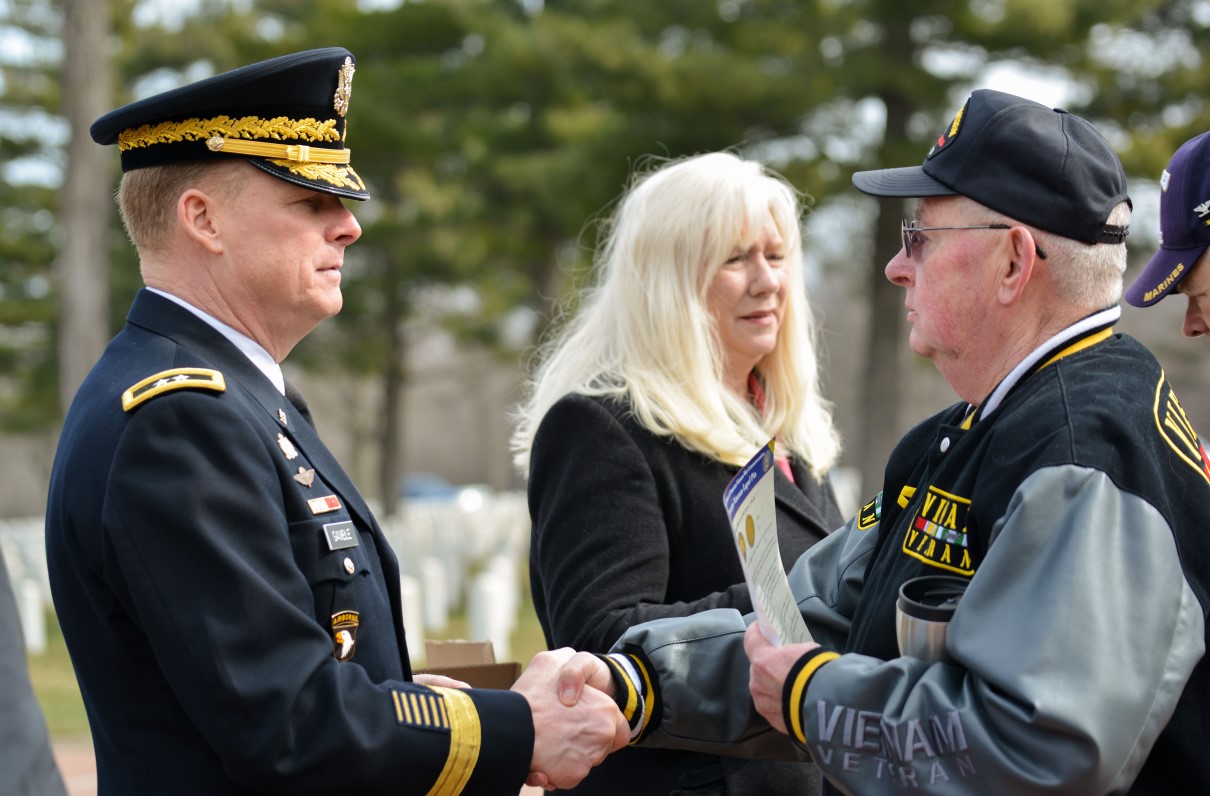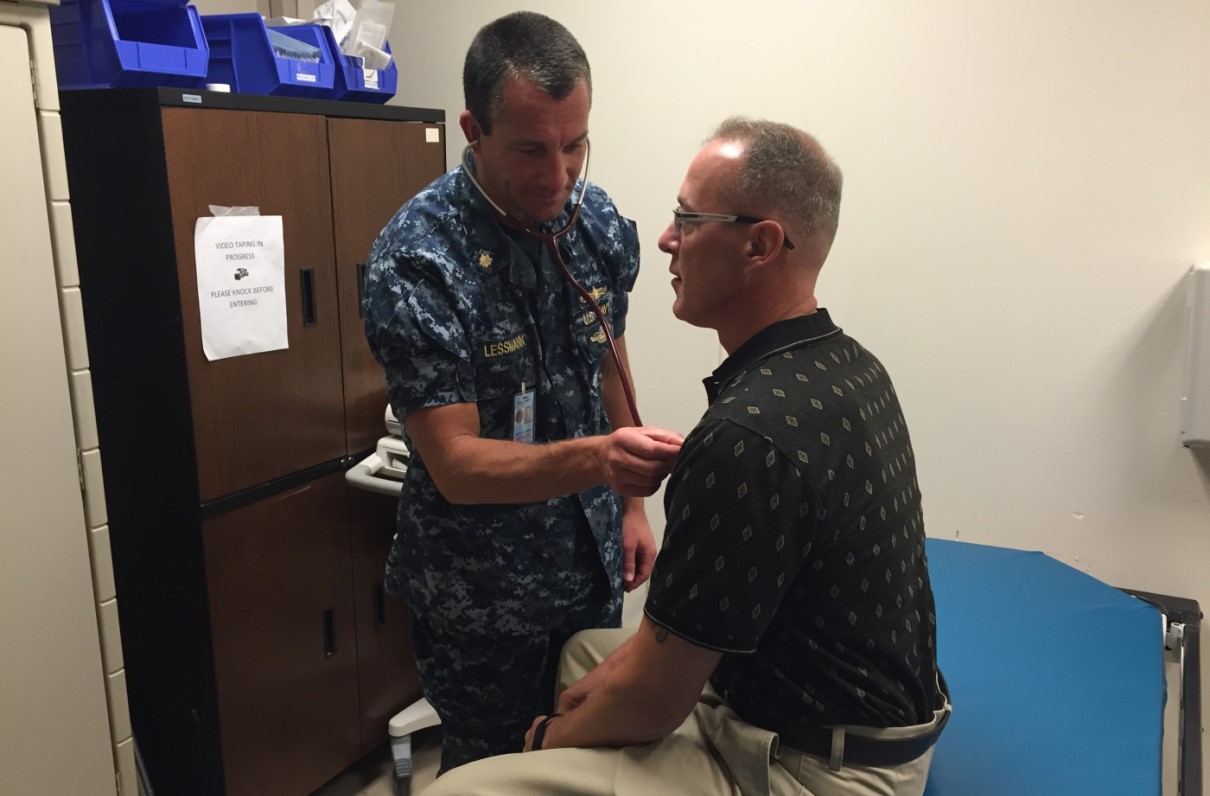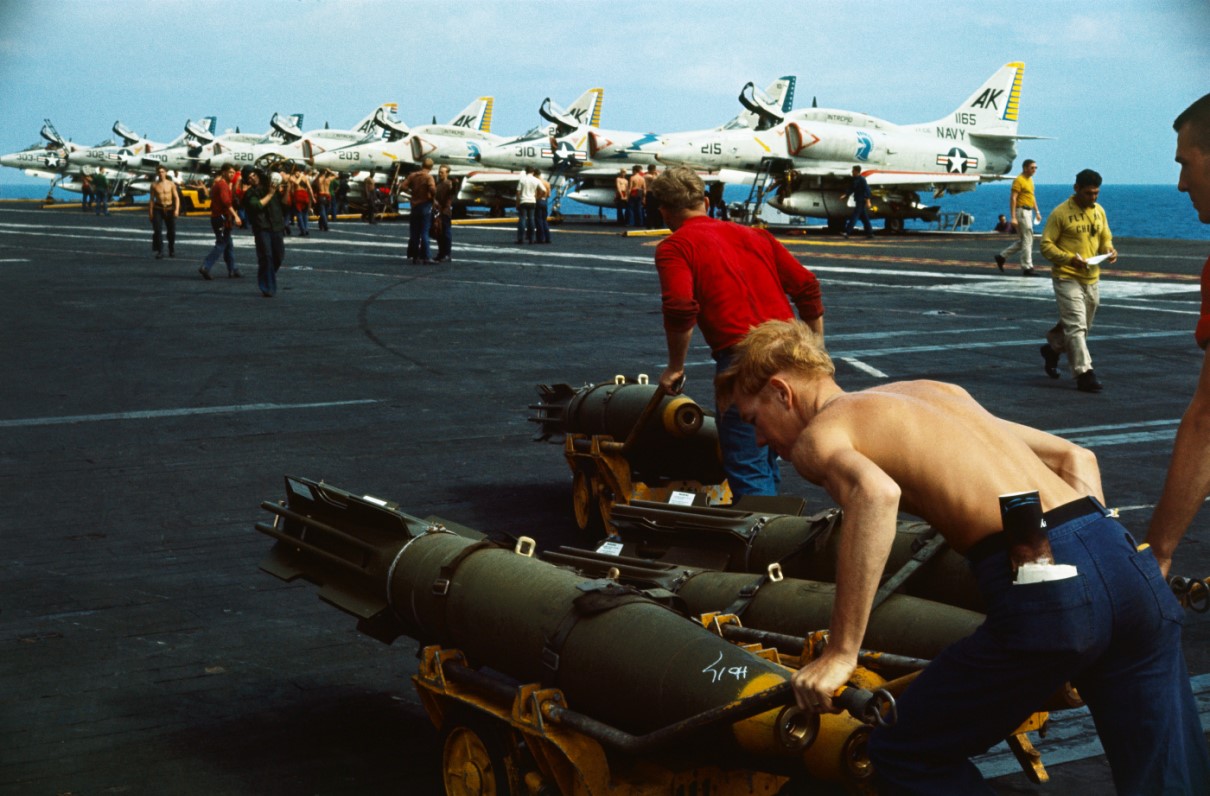Outside of the public view, Vietnam veterans trained, educated and led the next generation of troops while quietly shaping and inspiring their service. As decades passed and attitudes shifted, Americans now pause to reflect and thank Vietnam veterans for their service on National Vietnam War Veterans Day, March 29.
“I thought they were great leaders, combat-tested leaders,” Lt. Gen. Dana T. Atkins, MOAA's president and CEO, said of the Vietnam veterans who made up his unit's senior leadership while he made his way to Royal Air Force Bentwaters, U.K., to fly A-10s - his first operational assignment as a young officer. “You gained a level of respect having gone through that. Your leadership style is shaped by what you've seen. There certainly was a level of respect.
“The squad room was full of Vietnam veterans,” Atkins recalled. “There was a lot of influence from them. … You saw how they conducted themselves.”
Atkins, who served 34 years in the Air Force before retiring in 2012, said his earliest exposure to Vietnam came through his uncle Ed, who recorded audio tapes downrange that would be played at the family home in Portland, Oregon.
“You get intimate with Vietnam through that exchange,” said Atkins. “I certainly didn't have an animosity toward Vietnam.”
About the Day
March 29 became National Vietnam War Veterans Day in 2017, when President Donald Trump signed the Vietnam War Veterans Recognition Act into law.
President Trump is not the first commander-in-chief to designate a Vietnam Veterans Day, but he did enact the annual day of recognition into law. President Richard Nixon declared March 29, 1974, as Vietnam Veterans Day to mark the one-year anniversary of the withdrawal of U.S. combat forces from Vietnam. President Barack Obama declared March 29, 2012, as Vietnam Veterans Day, with his proclamation highlighting ongoing 50th anniversary events.
The discipline and professionalism of these veterans rubbed off on countless younger leaders, Atkins said. And while many of those veterans came home to public reactions that didn't reflect their service or sacrifice, some decades later, the nation has caught up.
Atkins said he witnessed a homecoming in the early 2000s for troops returning from deployment through Hartsfield-Jackson Atlanta International Airport. He recalled a group of people lining a corridor and waving small American flags; some people offered their cellphones so the troops could call parents to tell them they were home.
“It was a remarkable expression of gratitude and respect,” Atkins said. “I thought, 'Wow, it has taken three decades.' It was like polar opposites.”
Vietnam veterans have demonstrated resiliency that all incoming troops can learn from, Atkins said, noting MOAA will continue to fight for their benefits, including expanding benefits for Blue Water Navy veterans.
“Look back at these Vietnam veterans - our nation owes them a great debt,” Atkins said.
Amanda Dolasinski is MOAA's staff writer. She can be reached atamandad@moaa.org. Follow her on Twitter @AmandaMOAA.


.jpg)

